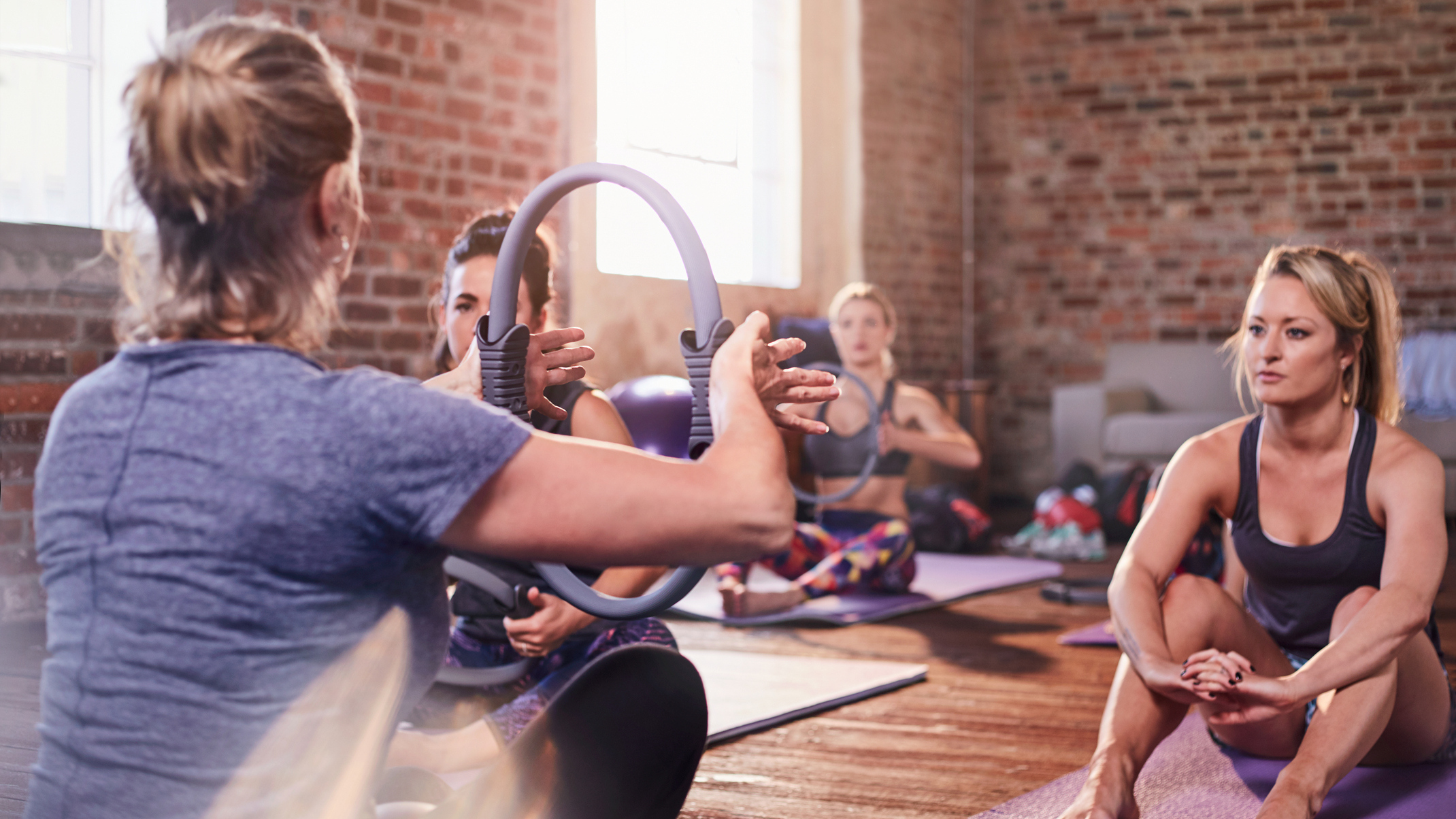
If you’re trying to build core strength and don’t really like doing crunches, because you find it hard to engage your core, then get your hands on a Pilates ring, sometimes known as the magic circle.
Placing a Pilates ring between your knees or ankles can help you to more effectively engage your abdominal muscles, including the obliques that run down the sides of your torso and the lower back.
For three ways to activate those hard-to-reach deep core muscles, take a look at these low-impact Pilates ring exercises posted on Instagram by Pilates Prescription app founder Rebecca Dadoun.
Then keep reading to discover why Dadoun thinks the Pilates ring is so good for building a stronger core.
How to do Dadoun’s low-impact Pilates ring exercises
Why a Pilates ring is good for core exercises
“The Pilates ring builds core strength by creating resistance and encouraging deep muscle activation,” Dadoun tells Fit&Well, “especially in the inner thighs, pelvic floor and abdominals.
“The ring increases the challenge in Pilates exercises by making your muscles work harder to maintain form and control.
“Using the ring between the knees or ankles recruits the inner thighs and pelvic floor, which are deeply connected to the lower abdominals.
“It improves mind-muscle connection because the ring responds instantly to pressure—you get real-time feedback, making it easier to feel your core activating and stay present in the movement.”
Dadoun also reassured me that low-impact workouts are no less worthy than high-impact ones.
“You can build real strength with controlled, resistance-based movements like Pilates,” says Dadoun. “You’ll also improve joint health, posture, balance and nervous system regulation without punishing your body. That means’ you’re more likely to stay consistent, which matters more than intensity over time.”







